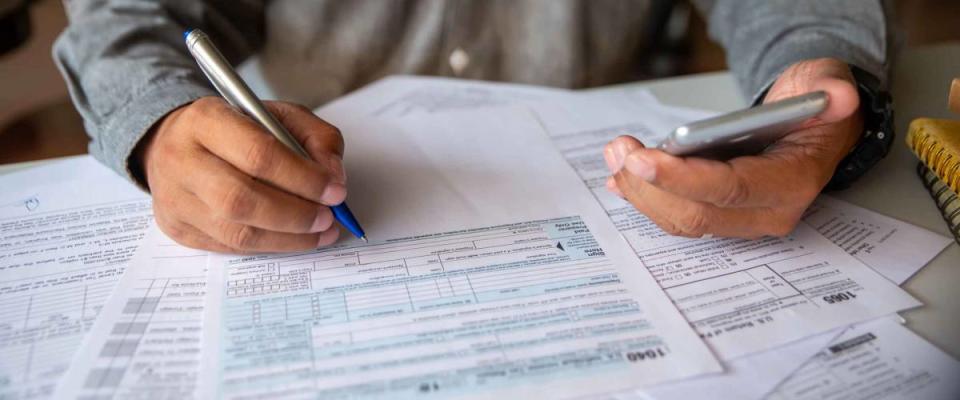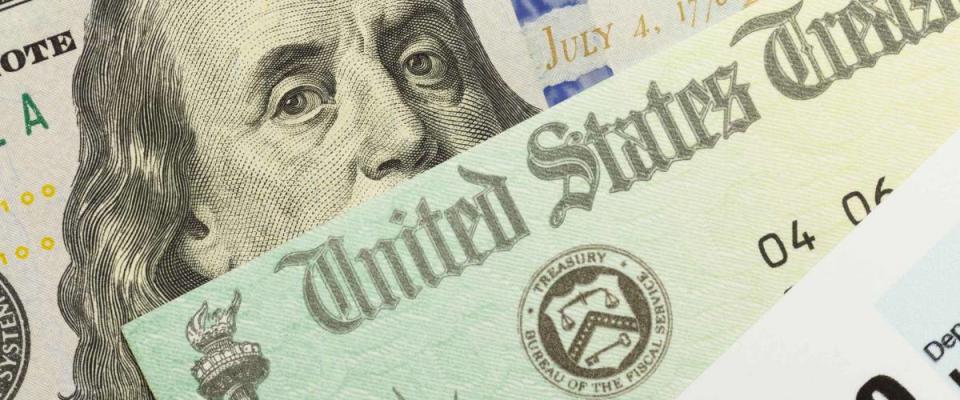COVID-19 Relief: Time your taxes or you could miss out on stimulus check money

Now that President Joe Biden has signed his $1.9 trillion pandemic relief package into law, some people could receive stimulus checks as early as the March 13-14 weekend.
That puts the rollout smack in the middle of tax season.
Why does that matter? Well, the timing of your 2020 tax return could make all the difference between getting the full $1,400 (or even more) and getting nothing.
Here’s what you should know as you file your tax return, plus a few tips to help your tax refund arrive on time this year.
How does my tax return affect my stimulus check?

Biden says about 85% of American households should get a stimulus payment, but the IRS will make the call based on the income listed in your most recent tax return.
As in previous rounds, anyone with an adjusted gross income under $75,000 (or $150,000 for couples) will receive a full payment.
The cutoff for a partial payment is more strict this time: Previously, taxpayers who made up to $100,000 (or $200,000 for couples) could still qualify for some money. Now it cuts off completely at $80,000 (or $160,000 for couples).
Depending on how your financial situation changed last year, filing your 2020 tax return could make a huge difference:
If you made less money in 2020 compared to 2019, you might get a check that you couldn’t claim before — or you might be eligible for a bigger payment. Hustle to get your return in ASAP.
If you made more money in 2020 compared to 2019, you might get a smaller payment — or miss out on a check entirely. Consider waiting to file until your stimulus check arrives.
If you had a child in 2020 — first off, congratulations — that’s another reason to file now. Households can get another $1,400 for every dependent child listed on their most recent tax return.
You have until April 15 to file your 2020 tax return, but if you can take advantage by filing now, using helpful tax software can make the process fast and simple.
Will my tax refund get delayed?

The pandemic dumped a ton of extra work on the IRS at the same time it needed to send its staff to work from home. The delays resulted in millions of backlogged 2019 tax returns.
The Government Accountability Office is predicting another tough tax season in 2021, saying many of the same issues that led to refund delays last year — like the agency’s reliance on paper — haven't been fully addressed. IRS commissioner Chuck Rettig has refused to push back the April 15 deadline this year.
The agency is encouraging businesses and consumers to file their returns online to speed up the process. And setting up direct deposit with the IRS will enable you to receive your refund — and your third stimulus check — that much faster.
What if I don't qualify for a stimulus check?

About 6.5 million households that received the last two stimulus payments won’t qualify for money in this round, according to an estimate from the nonpartisan Tax Foundation.
If you're not eligible but you need money, like, yesterday, you have a few options:
Cut the cost of your debt. If you’ve been leaning hard on credit cards through the pandemic, you’re probably piling up lots of costly interest. There’s a better way. Make your debt easier to carry — and unload sooner — by folding your balances into a single debt consolidation loan at a lower interest rate.
Reduce your mortgage payments by refinancing your mortgage. If you haven’t looked around for a lower interest rate on your home loan in the last year, what are you waiting for? Rates are still historically low, and refinancing your home loan could reap big savings. Millions of homeowners still have the potential to cut their monthly payments by hundreds of dollars through a refi.
Slash your insurance bills. Car insurance companies have been handing out discounts to drivers sticking close to home because of COVID. If your insurer won’t budge, then maybe it’s time to shop around for a better deal. You also could also save hundreds on your homeowners insurance by comparing rates to find a lower price.
Look into some money-saving apps. Make sure you’re maximizing your money whenever you have to spend it. For example, there’s a free app that earns you cash back when you take a photo of your grocery bill. And you can download a free browser extension that will automatically hunt for better prices and coupons whenever you buy online.

 Yahoo Finance
Yahoo Finance 